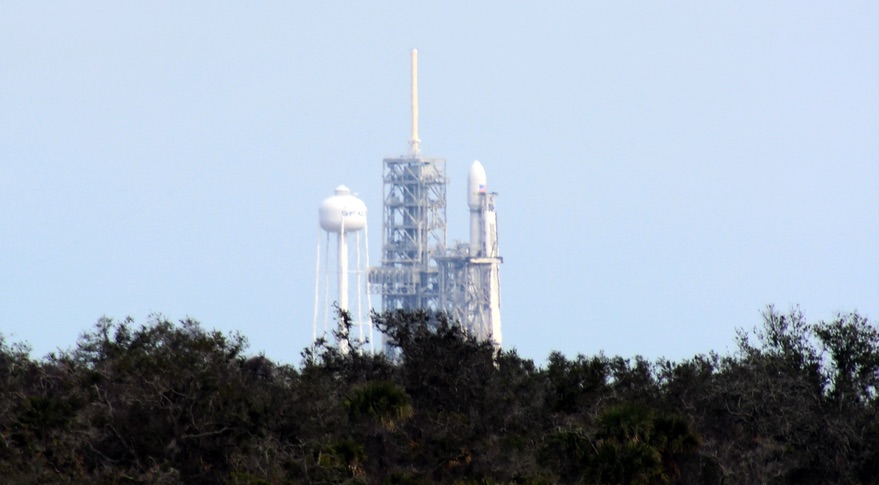SpaceX Wins $130 Million Military Launch Contract for Falcon Heavy Rocket

WASHINGTON — SpaceX has won its first big-ticket classified military launch contract for the Falcon Heavy rocket. The Air Force awarded SpaceX a $130 million contract for the launch of Air Force Space Command (AFSPC)-52 satellite.
The Falcon Heavy beat United Launch Alliance's Delta 4 in a competition under the Evolved Expendable Launch Vehicle program. The launch will take place at Kennedy Space Center, Florida.
The Air Force Space and Missile Systems Center in Los Angeles announced the contract award on Thursday. SMC Commander Lt. Gen. John Thompson said this was "another opportunity to foster competition on the EELV program in an effort to reduce launch costs while maintaining assured access to space." [SpaceX's Falcon Rocket Evolution in Pictures]
This is the fifth competitive procurement under the current Phase 1A of the EELV program since SpaceX entered the market to challenge ULA. The $130 million award for the Falcon Heavy launch is considerably lower than the average $350 million price tag for Delta 4 launches.
AFSPC-52 is a classified mission projected to launch in late Fiscal Year 2020.
SpaceX President and Chief Operating Officer Gwynne Shotwell said in a statement that the company is “honored by the Air Force’s selection of Falcon Heavy to launch the competitively-awarded AFSPC-52 mission.” She said the contract award indicates the military’s “trust and confidence” in the company.
Falcon Heavy also in on track to launch the U.S. Air Force’s STP-2 technology demonstration mission, currently scheduled for October.
Get the Space.com Newsletter
Breaking space news, the latest updates on rocket launches, skywatching events and more!
The Air Force released the solicitation of the AFSPC-52 mission September 28 and proposals were due October 30.
During a meeting with reporters at the Pentagon on Thursday, Lt. Gen. Arnold Bunch Jr., the military deputy for the Office of the Assistant Secretary of the Air Force for Acquisition, said he was confident that the cost of military launches will continue on a downward path.
"You have to watch what we’ve done. We’ve saved money over time," Bunch said. "That's driven some by what we’re doing with competition and also by the commercial demand signal. The two are coupled together."
This story was provided by SpaceNews, dedicated to covering all aspects of the space industry.
Join our Space Forums to keep talking space on the latest missions, night sky and more! And if you have a news tip, correction or comment, let us know at: community@space.com.

Sandra Erwin covers the military and national security beat as a Senior Staff Writer at SpaceNews. Sandra, based in Arlington, Virginia, specializes in Defense Department and Intelligence Community space programs, policy, budgets, technology and the industry that supports this sector. She joined SpaceNews in October 2017. Before coming to SpaceNews, Erwin covered the U.S. military, the Pentagon, Congress and the defense industry for over two decades as editor of the National Defense Industrial Association's National Defense Magazine and Pentagon correspondent for Real Clear Defense.










